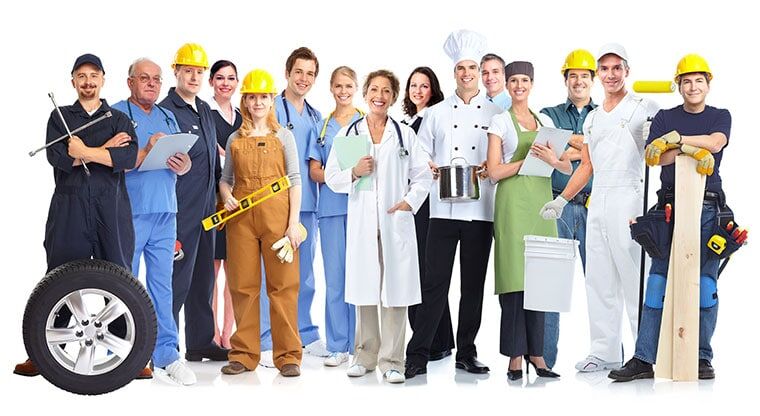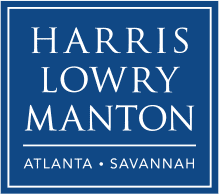
Georgia Attorneys Fighting for Essential Workers Who Have Been Injured or Killed by COVID-19
Representing essential workers and their families in Atlanta and Savannah
The coronavirus pandemic has changed the way Americans live and work, and its impact will likely be felt for many years to come. At the forefront of these challenges are “essential” workers – people who are get up and go to their jobs every day, despite the risks they face to their own personal health and safety, to ensure that their communities are safe and secure.
When essential workers sustain injuries, or are denied the proper care they deserve, the team at Harris Lowry Manton LLP is here to fight on their behalf. If you are an essential worker and have been denied personal protective equipment (PPE) or safety equipment, been subject to negligent or inadequate oversight and supervision, or have been injured because of negligence in the workplace, our attorneys in Atlanta and Savannah are here to help.
Please contact us today to schedule a consultation. We offer free remote consultations by phone and video to assist essential workers who are sheltering in place after their injuries, or who are in the hospital being treated for coronavirus and cannot leave quarantine. We also offer assistance for family members of essential workers who have tragically lost their lives during the pandemic. Our compassionate team members are here to help you seek justice during and after the COVID-19 outbreak.
The attorneys at Harris Lowry Manton are highly professional and extremely compassionate. They truly care about seeking justice for their clients.
⭐⭐⭐⭐⭐ [Google Review]
Who are “essential” workers in Georgia?
While every member of the American workforce is important to keep our country strong, some workers are exempt from statewide shelter-in-place orders. These workers are deemed “essential” workers, and include:
|
|
You can find a full list of essential workers here.
I've Been Injured on the Job. What are My Legal Options?
What are the risks to essential workers in Georgia?
The primary risk facing Georgia’s essential workers is an increased risk of contracting the virus. Because their work puts them in contact every day with the public, and because potentially 50% of the infected population may be asymptomatic, essential workers face serious threats for transmission. Members of Atlanta’s police force have tested positive for coronavirus, and more essential workers may develop the illness in the coming days and weeks.
Workers also face threats of being seriously injured while working, for a number of reasons. Some of those reasons include:
- Fewer people are going to work, which means each worker who continues to work has more to do.
- Lifting hours of service (HOS) regulations for essential truck drivers increases the chances of fatigued or distracted drivers on the road, which can lead to single- and multi-vehicle collisions.
- People speeding or acting recklessly on the roads, as there are fewer law enforcement officers to pull them over – and many officers may be reluctant to stop vehicles committing minor infractions.
- Nurses, doctors, and healthcare personnel are being asked to handle exponentially more patients, increasing the risks for falls, lifting injuries, open sores (from having to wear additional layers of PPE, like goggles, at all times), exhaustion, and other injuries.
- Fewer workers can lead to critical infrastructure failures, such as breakdowns in supply chains, issues at energy providers, and other areas of manufacturing.
- A serious shortage in PPE can lead to healthcare workers developing other, non-coronavirus infections while working.
Are Atlanta essential workers at risk?
At this time, there are 1,902 confirmed cases of COVID-19 in Fulton County – about 178.8 cases per every 10,000 people.
Are Savannah essential workers at risk?
At this time, there are 160 confirmed cases of COVID-19 in Chatham County – about 55.3 cases per every 10,000 people.
What are my options if the PPE shortage caused my injuries?
One of the most serious problems facing essential workers, especially healthcare workers, is a lack of PPE. Compounding this issue is that certain hospitals are telling their healthcare professionals that those workers cannot wear their own PPE, per the American Medical Association (AMA) – which has gone on record saying it fully supports all frontline medical workers “in using their own face masks and respirators when these critical resources are unavailable and not provided by their employer.”
As such, many workers face two options: either work without the necessary PPE they need to keep them safe, or get fired.
If healthcare workers have been denied access to PPE like N95 respirators, or told to remove their own PPE under penalty of termination – against the recommendation of the AMA and other medical associations – those workers may have legal options if they are injured or develop the illness. If the worst comes to pass and those healthcare workers die, their families could have cause to file a wrongful death claim.
Read more: Hospitals Are Making Doctors and Nurses Remove Their PPE During a Pandemic
Helping workers and residents of nursing homes in Georgia
Nursing homes have proven especially susceptible to coronavirus outbreaks: the residents are older and often have underlying health conditions, two factors that have played a role in COVID-related deaths. In some cases, it may be impossible to ensure that all residents are socially isolated or quarantined after someone comes in contact with the virus. In other cases, lack of testing may make it difficult to tell if a resident or staff member has contracted coronavirus in time – and with a shortage of essential workers, like nursing home staff, facilities may be reluctant to ask sick staffers to stay home, even if they know the risks.
Like all residential facilities, nursing homes in Georgia are doing their best in the face of an unprecedented event. But like all employers, administrators at these facilities should be providing PPE to their workers, and insist on following CDC protocols. That can include:
- Placing a moratorium on outside visitors
- Ensuring that all surfaces are regularly and routinely disinfected
- Moving furniture to ensure social distancing
- Enforcing hand-washing protocols and giving workers and residents gloves and face masks, if other PPE is not available
It’s important to be on the lookout for negligence regarding the care of elderly and sick residents, including the proper administration of medications.
How Harris Lowry Manton LLP can help if you sustained injury during the COVID-19 outbreak
At Harris Lowry Manton LLP, we believe that communities do better when we all look out for one another. We also know that, when you are hurt, you can rely on our decades of experience helping the injured throughout Georgia. Our attorneys in Atlanta and Savannah know how to accurately assess and value any injuries or losses you have sustained, and how to thoroughly investigate the circumstances surrounding your injuries. We work with outside field experts such as accident reconstructionists and financial advisors, when appropriate, to bolster your claim.
Even now, as so many court systems have shut down in-person services except for emergency hearings, we are still hard at work for our clients. We conduct remote consultations via phone or video conference, send documentation via encrypted software to ensure your privacy, and continue to prepare cases for trials, so there is no delay once the judicial system is fully operational again.
Fighting for the injured in Atlanta, Savannah, and beyond
Harris Lowry Manton has secured millions of dollars on behalf of injured clients in Georgia. If you or your loved one is an essential worker who was hurt or even killed because of negligence during the coronavirus outbreak, we want to help. To learn more about our services, please call us in Savannah at 912-651-9967, in Atlanta at 404-961-7650, or fill out our contact form.
Read More:
